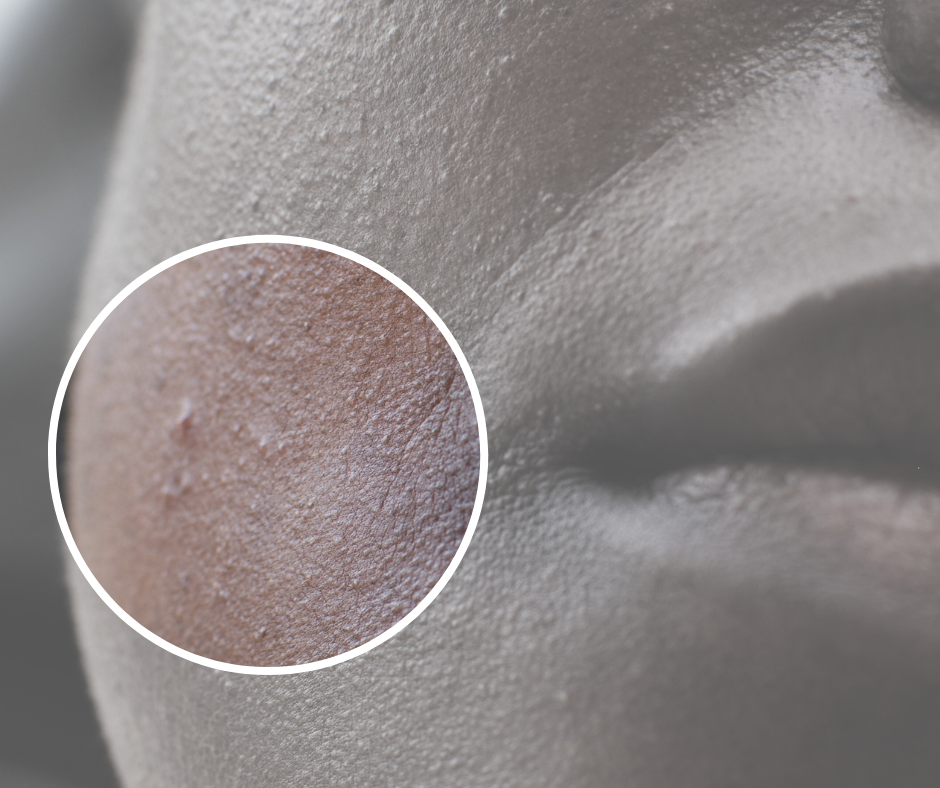Textured / Dull Skin
What is Textured/Dull Skin?
Achieving smooth, glowing skin is a goal for many, but textured and dull skin are common concerns that can affect anyone. Textured skin refers to an uneven surface that may feel rough or bumpy to the touch, while dull skin lacks brightness and radiance, often appearing tired and lifeless.
Various factors, including lifestyle choices, environmental influences, and underlying skin conditions, can contribute to these issues.
Fortunately, with the right treatments and skincare regimen, it’s possible to restore a smooth, vibrant complexion.

Symptoms
- Rough or bumpy texture: Often caused by the buildup of dead skin cells, textured skin can feel uneven to the touch. This roughness is usually most noticeable on the face, particularly in areas like the forehead, cheeks, and chin.
- Dull appearance: The skin may lack its natural glow, appearing flat and lifeless. This dullness can result from dehydration, poor circulation, or the accumulation of dead skin cells that block the skin’s natural radiance.
- Dry, flaky patches: These areas are prone to dryness and can contribute to the skin feeling uneven and looking less vibrant. Flaky patches are commonly associated with dehydrated or poorly exfoliated skin.
- Enlarged pores: Textured skin can sometimes be accompanied by enlarged pores, particularly in oily skin types. This can give the skin a rough or uneven appearance.
- Bumps resembling goosebumps: These tiny, raised bumps can occur even when you’re not cold, often appearing on the arms, thighs, or face. They can be related to conditions like keratosis pilaris, where dead skin cells clog hair follicles.
- Hyperpigmentation and discolouration: Uneven skin tone or dark spots can emphasise texture and contribute to a dull complexion.

Causes
- Underlying medical conditions: Eczema, psoriasis, or rosacea can lead to uneven skin texture and dullness due to inflammation and irritation.
- Environmental factors: Prolonged sun exposure, smoking, and pollution can damage the skin’s surface, leading to roughness and loss of radiance.
- Genetics: Genetic predisposition can determine how your skin ages and its tendency to develop conditions that affect texture.
- Diet and dehydration: A diet high in processed foods and sugar, combined with inadequate water intake, can lead to inflammation and exacerbate skin texture issues.
- Ageing: As the skin ages, the natural production of collagen and elastin slows down, leading to wrinkles, sagging, and an uneven texture.
- Poor skincare routine: Failing to properly cleanse, exfoliate, and moisturise the skin can result in the buildup of dead skin cells and clogged pores, contributing to texture and dullness.
Recommended Treatments For Textured / Dull Skin
Previous slide
Next slide
Why choose SkinHD to treat my Textured/Dull Skin?
- Over 20 years combined medical knowledge and experience
- Champions of natural looking results
- Honest and genuine advice – we’ll never suggest treatments you don’t need!
- No hard-sells or pushy sales techniques
- Friendly and family run clinic in South Manchester
- Loyalty programme, earn as you spend, referral scheme and birthday bonuses!
- Payment options available through Klarna
